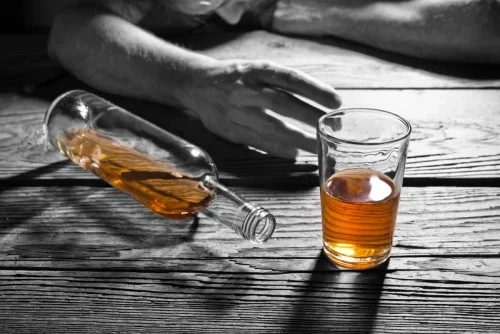
The physical dependence accompanying tolerance is profound, and alcohol withdrawal has potentially fatal adverse effects. Alcohol intoxication is usually treated with support and care as the body processes alcohol. In many cases, symptoms of intoxication will gradually decrease as alcohol is metabolized and eliminated from a person’s system. As a result, overcoming guilt and negative self-talk is vital.
What are the symptoms of alcohol intoxication?
People may have exaggerated emotional episodes, and their balance may be all but gone. They may have feelings of numbness and become unaware of their surroundings. The symptoms of ethanol intoxication depend on both the serum concentration as well as the frequency at which an individual ingests ethanol. Thus, a person who consumes large amounts of ethanol on a daily basis may appear sober at the same serum ethanol level at which a novice drinker exhibits cerebellar dysfunction. However, there can be deadly consequences of not getting help. The only cure for alcohol poisoning is emergency medical treatment.

Alcohol poisoning prevention
- Alcoholic hallucinosis (hallucinations without other impairment of consciousness) follows abrupt cessation from prolonged, excessive alcohol use, usually within 12 to 24 hours.
- The condition is usually linked to drinking too many alcohol beverages.
- Notably, the signs of intoxication don’t always correlate with BAC levels.
- This is when a male rapidly consumes five or more alcoholic drinks within two hours or a female consumes at least four drinks within two hours.
- These symptoms often occur in stages, depending on how intoxicated a person is.
“There is no designated ‘safe’ level of drinking,” says Dr. Donald. If you do choose to drink, your body’s response to alcohol depends on many factors. These include your age, gender, overall health, body weight, how much you drink, how long you have been drinking and how often you normally drink.
How Common Is Binge Drinking?
When someone consumes alcohol, they may not feel the full effects for a while. Factors like age, body weight, and rate of consumption all affect the stages of alcohol intoxication rate of intoxication. Although being drunk can feel fun to begin with, it is a sign that alcohol has temporarily changed how the brain functions.
Alcohol poisoning treatment
Your trusted resource for health and wellness information and the latest medical advances to help you and your family live better. Alcohol poisoning happens when there’s too much alcohol in your blood, causing parts of your brain to shut down. When a person is intoxicated and loses their gag reflex, the doctor may insert a breathing https://ecosoberhouse.com/ tube to prevent vomit from entering the lungs. Coma or unconsciousness is possible when a person’s BAC is between 0.35% and 0.45%. At this point of intoxication, reduced respiration and circulation depression are life-threatening. They may experience an increased pain threshold and may not feel the effects of an injury until later.

- Most programs help set up your aftercare once you complete the inpatient portion of your treatment.
- The goal of outpatient treatment is to provide therapy, education, and support in a flexible environment.
Symptoms of alcohol-induced psychosis
- Many people can drink occasionally without negative effects.
- The amount of alcohol in a person’s bloodstream is their blood alcohol content (BAC).
- The diuretic effects of alcohol increase as your blood alcohol concentration rises, meaning the more you drink, the more you’ll wake up at night to pee.
- Alcohol-induced psychosis can happen after intoxication, during withdrawal, or it can be chronic among people living with alcohol use disorder (AUD).
- The following are some signs that an individual may be experiencing critical alcohol poisoning and need immediate medical attention.
- Binge drinking is defined as drinking that brings blood alcohol concentration (BAC) to 0.08% or higher.
